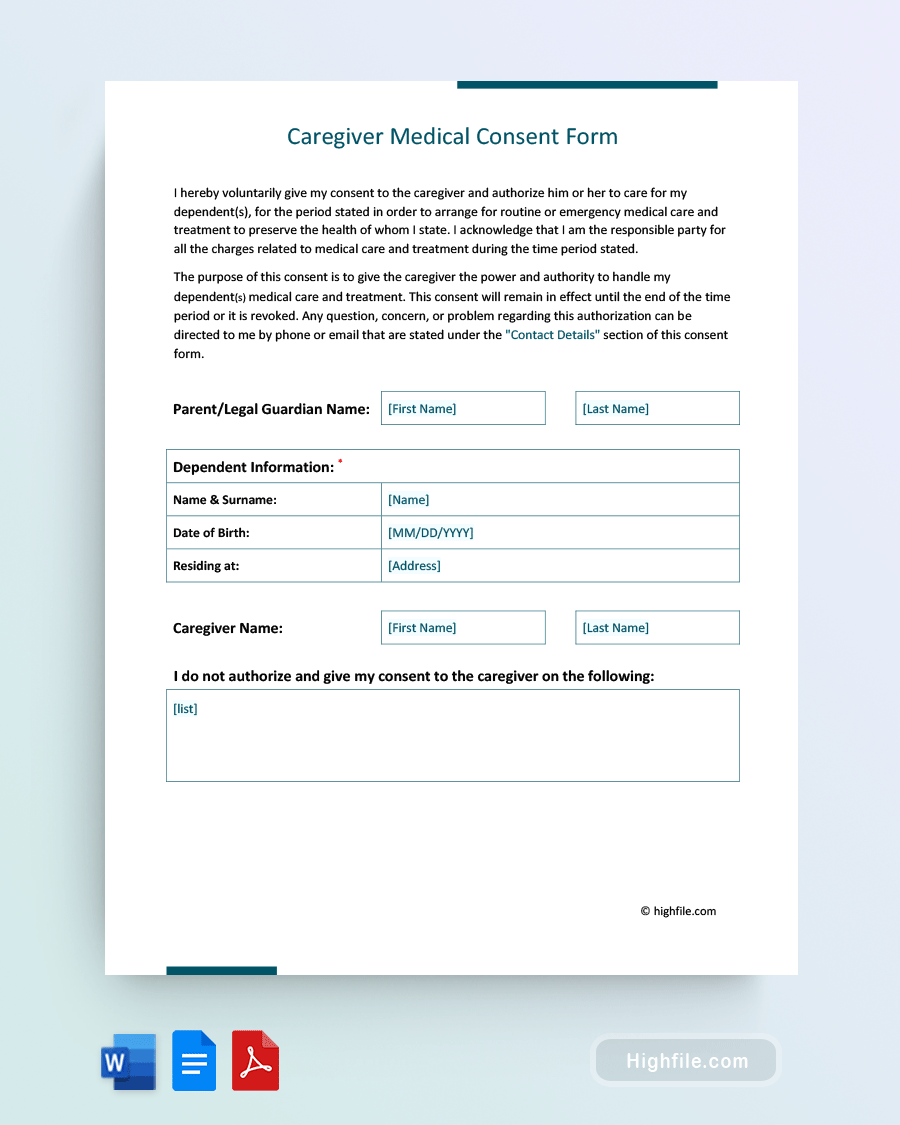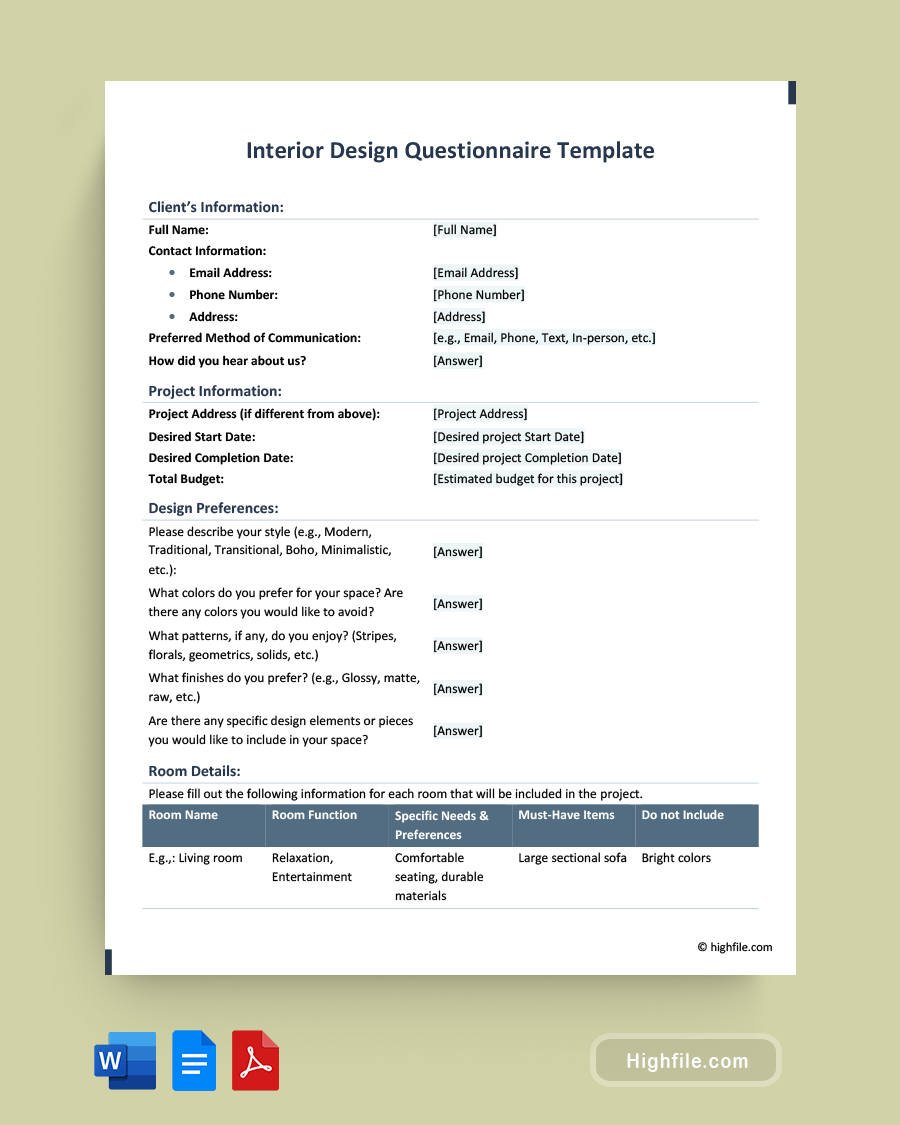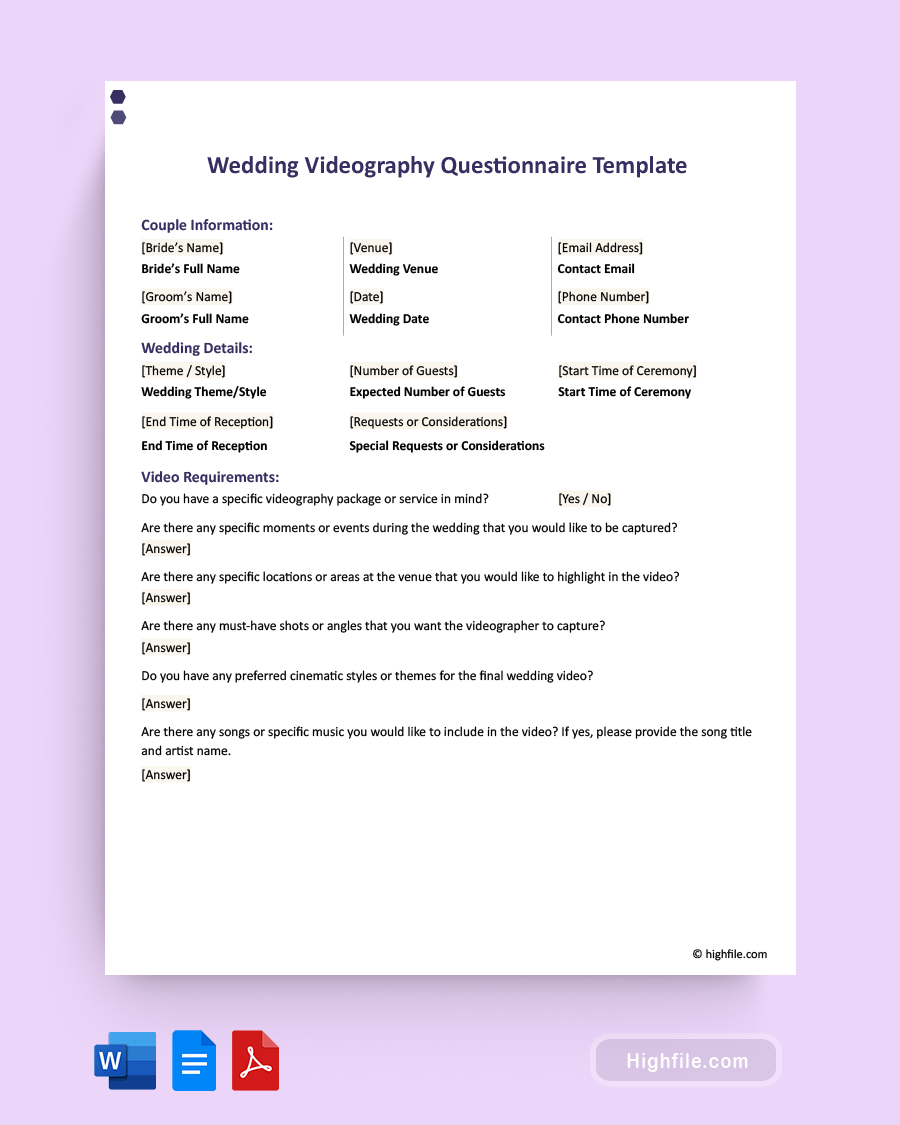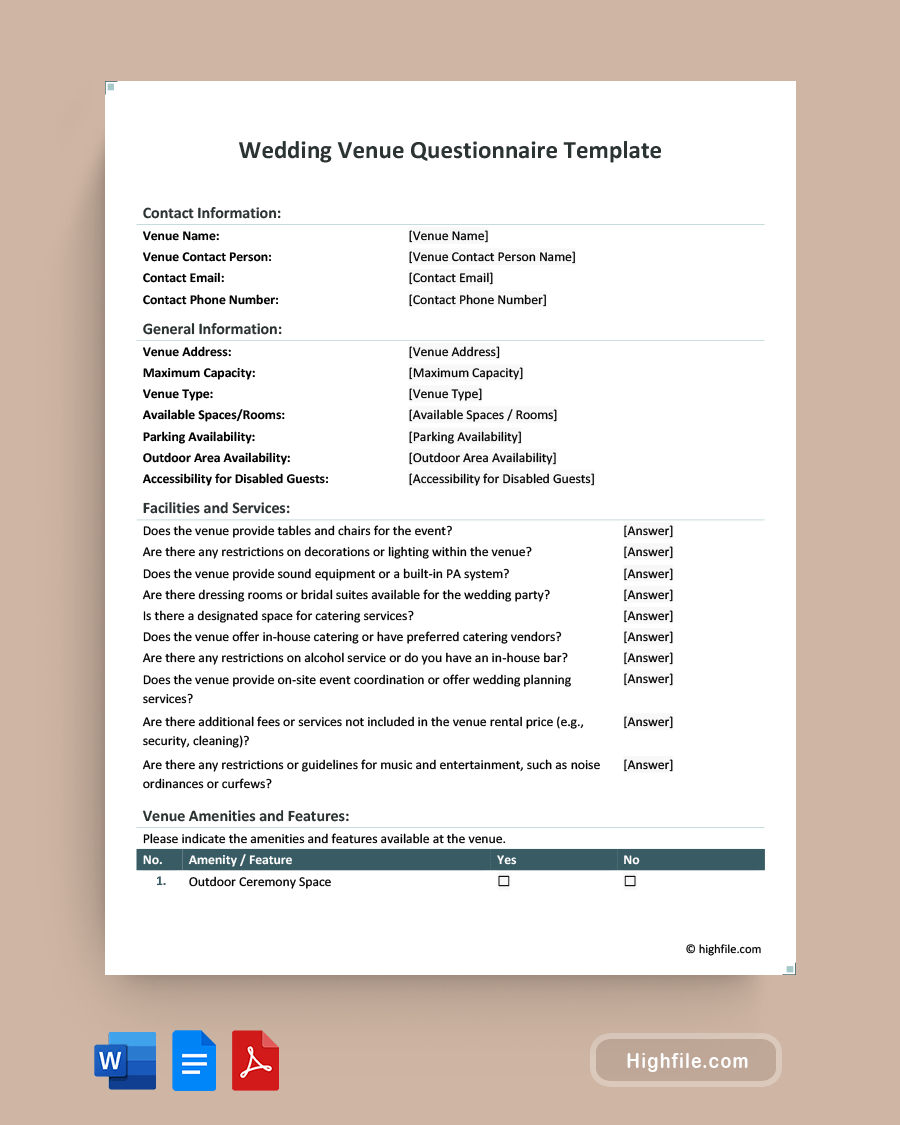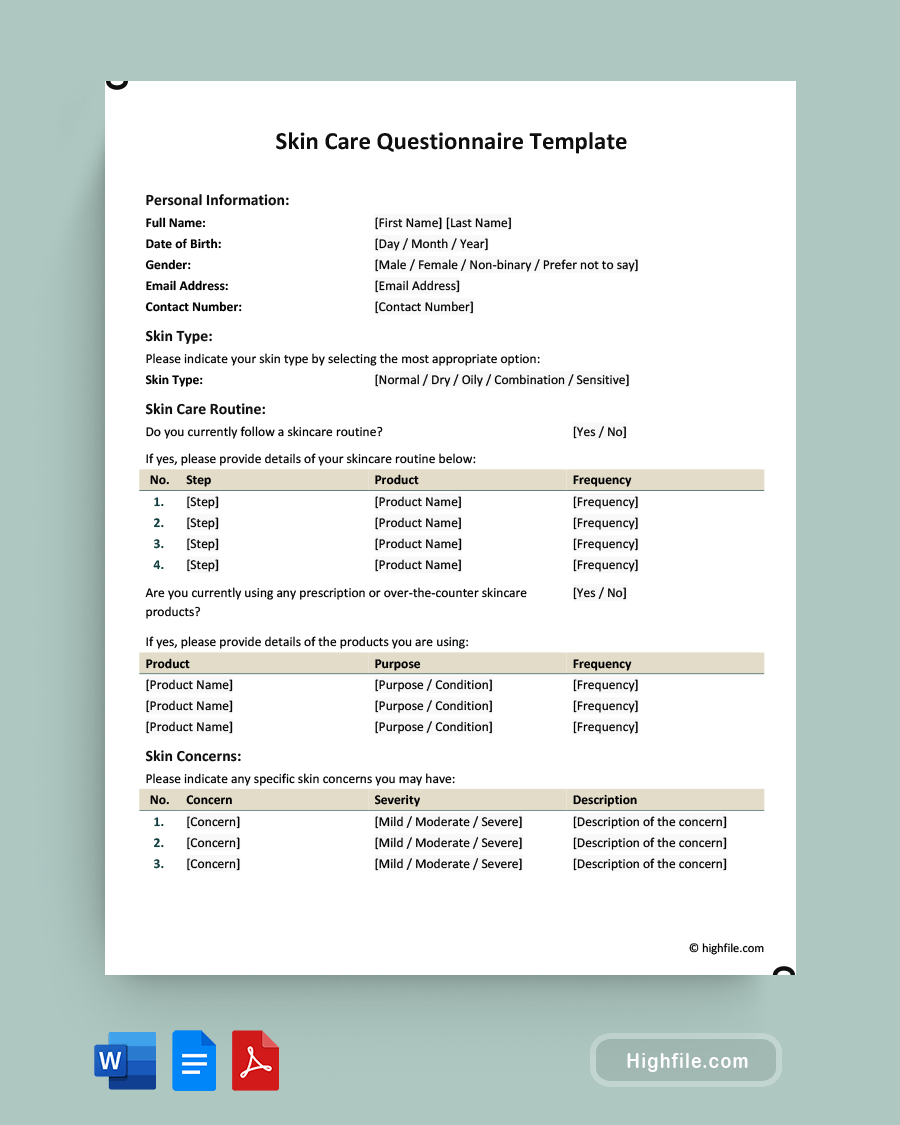A Caregiver Medical Consent Form should be signed when a caregiver is given the authority to make decisions on behalf of someone in their care. The form allows a caregiver to make decisions regarding medical care and treatments, including the ability to provide consent for medical treatments and (sometimes) make decisions regarding end-of-life care. These documents should be signed by both the caregiver and the person they are caring for. It may also be witnessed by at least one other person, such as a doctor, lawyer, or notary public, but it’s not required. Using a Caregiver Medical Consent Form Template can help you create a high-quality legal document quickly and easily.
The parent or guardian should only sign a Caregiver Medical Consent Form when it is clear they have the capacity to do so. It can be challenging to know when someone has sufficient mental capacity, and a caretaker should ask family members or friends who know the patient well if they are unable to make decisions on their own. Generally, a person must be at least 18 years old to sign a Caregiver Medical Consent Form. Some states may have different age requirements for signing this form. When the usual parent or guardian cannot legally consent, another responsible party must sign the agreement. Otherwise, it is considered invalid.
What Is a Caregiver Medical Consent Form?
A Caregiver Medical Consent Form is a legal document that gives a designated caregiver the authority to access and make decisions about a patient’s medical information and healthcare needs. The form allows the caregiver to make decisions on behalf of the patient, including authorizing medical treatment, accessing medical records, and communicating with medical providers. It is essential to ensure patients’ healthcare needs are met when they cannot make decisions themselves.
Why Is Caregiver Medical Consent Form Important?
A Caregiver Medical Consent Form is important because it ensures that the right person has the authority to make medical decisions and provides legal protection in case of any dispute. It also helps protect the rights of all parties involved and ensures that all decisions are made according to the law. The list below contains all the reasons you should always provide a Caregiver Medical Consent Form for your dependents when they are under someone else’s care and supervision.
- It shows what the caregiver has permission to do on behalf of the patient
- It states clearly what caregivers cannot do
- It clarifies the responsibilities of all parties involved
- It provides consent from the legal guardian, power of attorney, or parent to the caregiver
- It can be used in court if there is a dispute or legal question later
Key Components of a Caregiver Medical Consent Form
The key components of a Caregiver Medical Consent Form exist to ensure that a person, typically a dependent or child, can receive necessary medical care, especially in case of emergencies. These elements show that the responsible party and the temporary caregiver are both aware of their responsibilities and the scope of the agreement. Below we’ve created an outline to explain what needs to be on this document and why.
- Document Title- The title ‘Caregiver Medical Consent Form’ at the top clearly shows what this form is and its purpose.
- Consent Statement- The consent statement authorizes the caregiver to seek treatment on behalf of the patient. It also demonstrates the parent or guardian accepts financial responsibility for paying the patient’s medical costs.
- Intent Statement- The intent statement clarifies precisely what the purpose of this document is.
- The Parent or Guardian Name- The full name of the person normally responsible for medical decisions
- Dependent Name- The name of the patient
- Dependent Information- This section should include their address, date of birth, and other relevant basic information about them.
- (Optional but Recommended) Dependent Medical Information- If the patient has any allergies or other significant medical issues, it is wise to list them here.
- Caregiver Name- Who is receiving the permission to make medical decisions temporarily?
- Limitation of Scope- This section should state what the caregiver does not have permission for, such as looking at the patient’s medical history or approving certain types of treatments.
- Effective Dates- Give a beginning and ending date for this form’s effectiveness.
- Parent or Guardian Contact Information- Make certain there is a way to contact the parents or guardians in case of questions.
- Oath Statement- The oath statement says the parent or guardian officially gives full and voluntary consent for the caregiver to make medical decisions as specified above.
- Parent or Guardian Name, Signature or eSignature, and Date- By signing and dating this form, it becomes a legally binding contract that allows someone other than the parents or guardians to make medical decisions for the dependent/patient for a limited time.
Customizing the Caregiver Medical Consent Form for Specific Needs
The Caregiver Medical Consent Form must be customized to meet the patient’s specific needs to ensure their safety and health. Below is a list of what to look at when customizing these documents for specific needs so that caregivers know their responsibilities when providing care. It will also discuss how to make sure the form meets all relevant legal requirements and offer advice to help you maximize the benefits of using them.
- Caregiver’s Role- Explain the caregivers’ responsibilities and their relationship to the patient. Include information on the scope of their right to make medical decisions.
- Power of Attorney or Guardianship- If the caregiver has the power of attorney or legal guardianship while this form is in effect, make sure to include that information.
- Duration of Use- Specify the exact or anticipated duration of the form, such as listing the intended dates for a trip.
- Patient Information- Make certain to note any important medical history, allergies, or conditions the patient has.
- Liability Waiver- Waive liability for medical care professionals when working within a good faith understanding of the caregiver’s consent and responsibility.
- Scope of Care- List what the caregiver cannot do.
- Confidentiality- Be certain to address patient confidentiality, such as, who doctors and medical staff should contact and inform, and under what circumstances they may access medical records or share medical information.
- Revocation and Modification Clauses- Add a clause for modifying or revoking consent.
- Legal Consultation- You can (and should) consult with an attorney for more information on how to write this document. It is a legally binding contract.
FAQs
To make sure you get the most out of your Caregiver Medical Consent Form template, we’ve compiled a list of the most commonly asked questions and their answers below. You’ll find answers about the potential consequences for caregivers who make medical decisions without a proper consent form, differences between a caregiver medical consent form, healthcare power of attorney, a living will, and much more.
A medical consent form for caregivers can be used in emergencies to authorize medical professionals to treat a patient. This form allows ambulance personnel, hospital staff, or other medical personnel to quickly and efficiently provide care to the patient in need. The form can be filled out by the patient or the patient’s legal guardian. It should include detailed information about the patient’s medical history, allergies, and other pertinent medical information. It should also include contact information for the patient’s family members or other authorized representatives.
A Caregiver Medical Consent Form is a document that allows a caregiver to make medical decisions on behalf of a patient who is unable to make such decisions for themselves. The form must be signed by the patient or the patient’s legal guardian, allowing the caregiver the legal authority to make decisions regarding the patient’s medical care, such as consenting to treatments, medications, and procedures. They should be composed plainly, taking into account the patient’s knowledge and understanding of their condition and needs.
A healthcare power of attorney is a legal document that designates an individual to make medical decisions on behalf of another individual when the latter is unable to make those decisions for themselves. It is typically used for those who need significant and ongoing medical care or even end-of-life care though it can also be a short-term agreement. This document is also commonly called an advance directive; a living will, or a medical power of attorney. When a person signs a healthcare power of attorney, they are granting someone else the authority to make healthcare decisions on their behalf.
The person designated by the healthcare power of attorney (also referred to as the agent) can make decisions about the individual’s medical care, including the type of treatment they receive and who provides it. Many people use medical power of attorney to provide that decision-making authority to a close family member such as a spouse or parent.
A caregiver medical consent form can be used for patients with cognitive impairments or dementia. This form allows caregivers to make decisions on behalf of the patient regarding their medical care, including providing consent for necessary treatments and medications. The parent or guardian of the patient should sign the form. Additionally, the caregiver must always keep a copy of the form with them in case of an emergency.
The potential consequences for caregivers who make medical decisions without a proper consent form in place can be severe. Depending on the type of medical decision made, the consequences may include criminal charges, fines, civil liabilities, and professional penalties.
If a caregiver makes a medical decision without obtaining informed consent from a patient, they may be charged with battery or assault. These charges may carry a prison sentence or other serious penalties depending on the state or jurisdiction. In addition to potential criminal liability, caregivers may face civil lawsuits from patients or family members who allege their rights were violated due to a lack of informed consent.
Informed consent is a legal term that refers to the process of obtaining consent for medical treatment. It commonly entails explaining risks, benefits, and alternatives in language appropriate to an individual’s understanding before they agree to any form of treatment or decision. A doctor who fails to take this step may be seen as having made a medical decision without informed consent and may be liable for battery or assault.
A caregiver medical consent form can be used to authorize consent for mental health treatment or counseling. The form will generally have a section that allows the caregiver to provide written authorization for mental health treatment or counseling. This section will include the details of the treatment or counseling, including the type of therapy or intervention, the treatment, duration, the healthcare provider, and any other relevant information.
Key Points
Caregiver Medical Consent Forms are an important document for families and caregivers that provide care for dependents and should be completed with great care. These forms grant caregivers the legal authority to make medical decisions on behalf of the dependent in case of an emergency. The purpose of these forms is to ensure that the dependent receives proper medical care when needed and that their rights are protected in such cases. It must include all necessary information about the dependent, such as their name, age, address, and any special medical conditions or allergies they may have. This form also outlines the rights of the caregiver to make medical decisions on behalf of the dependent in case of an emergency. Using a Caregiver Medical Consent Form Template will help ensure you include all the correct information and consent. With this document, families can feel secure knowing that their dependents will receive proper medical care when they need it most.
